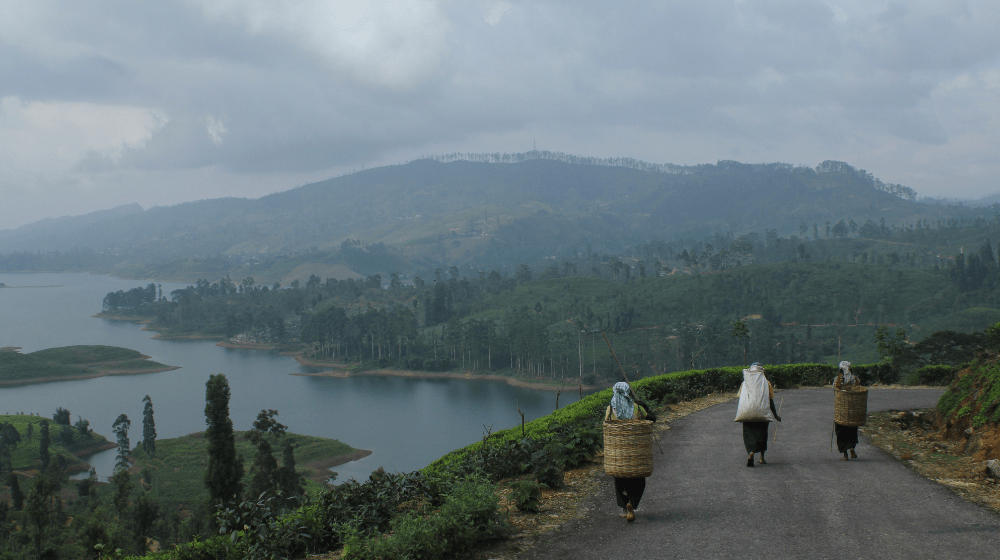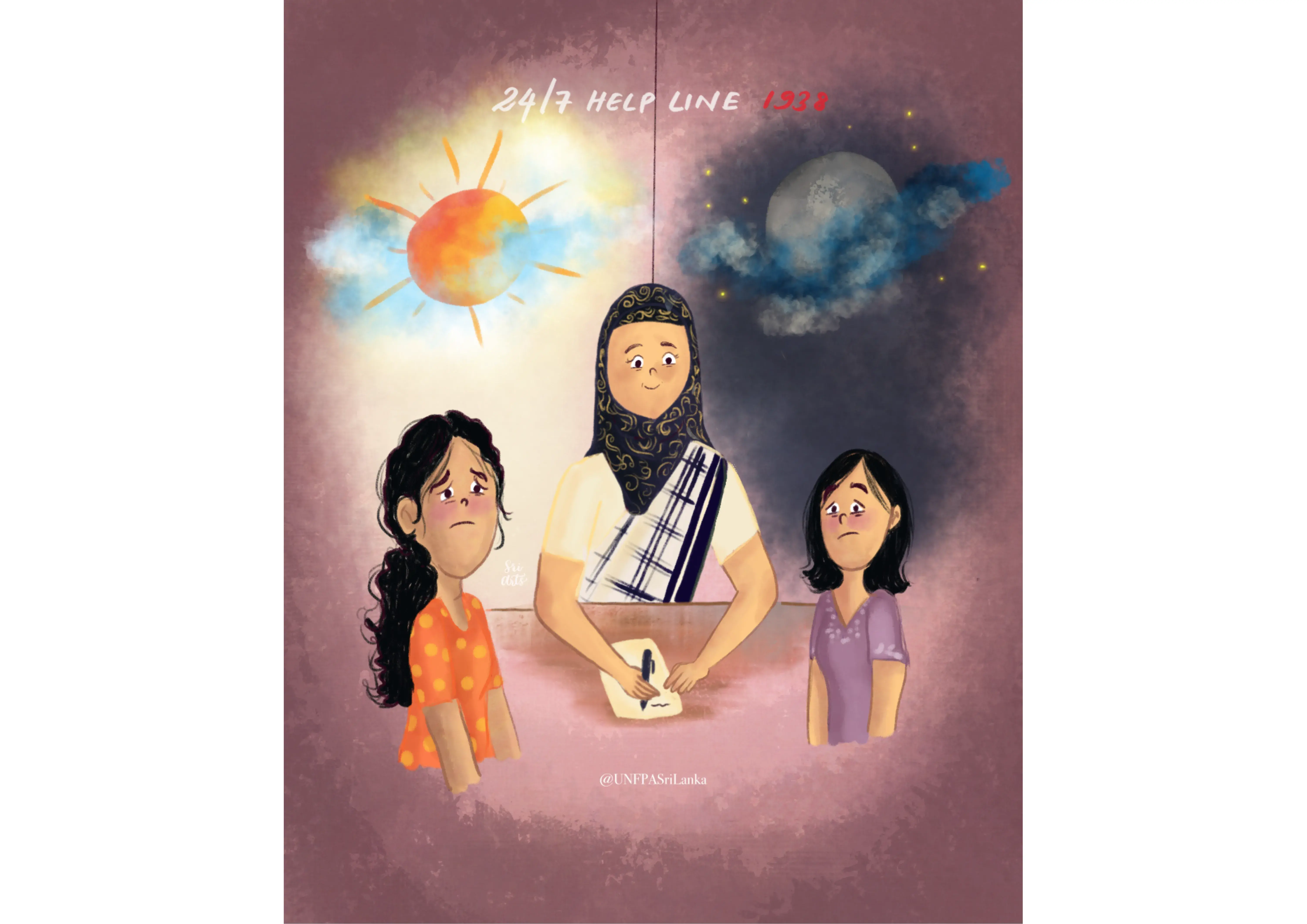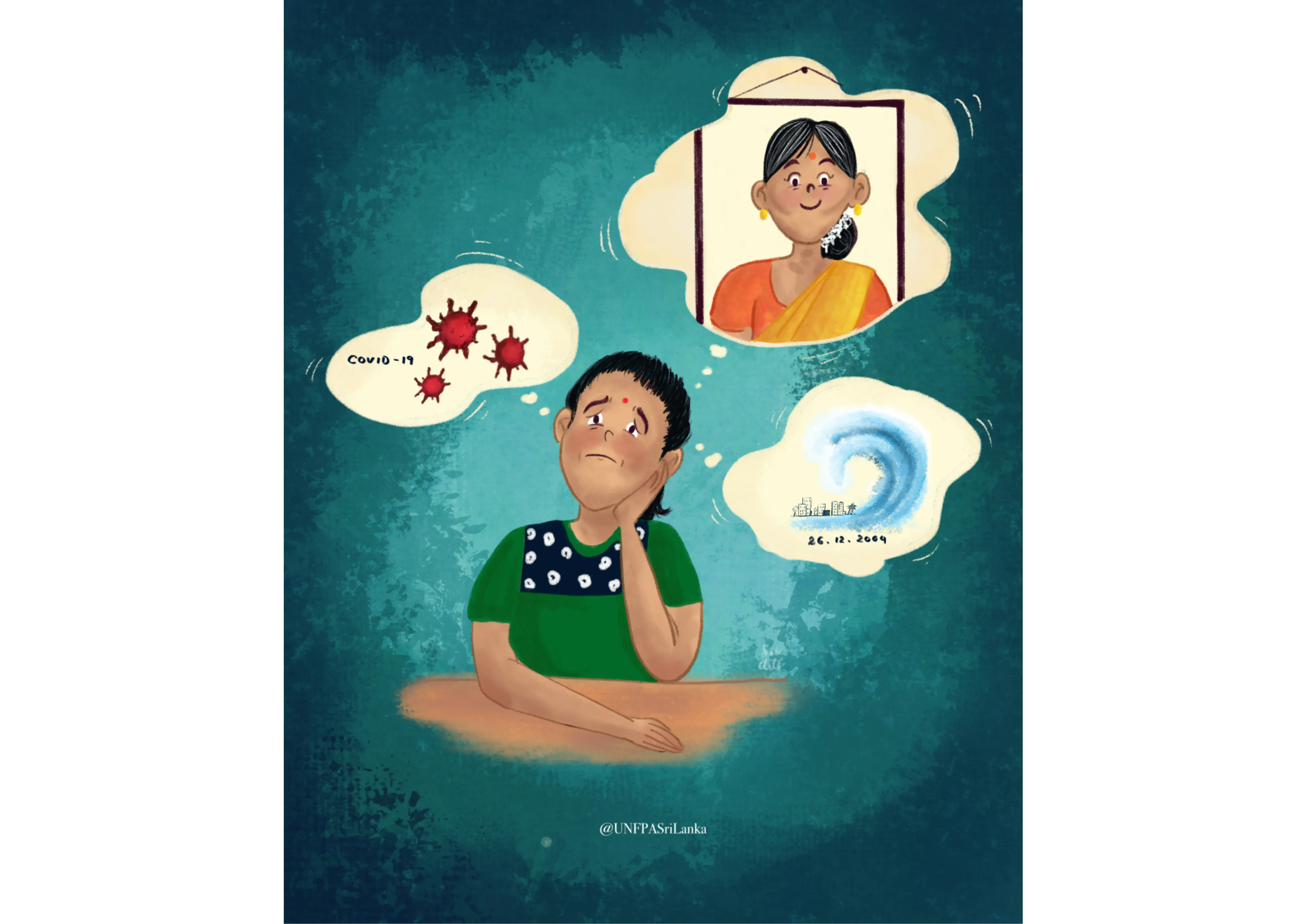In 2019, the United Nations Population Fund with support from the Government of Canada provided technical and financial assistance to the Department of Census and Statistics (DCS) to undertake the Women’s Wellbeing Survey - a national survey to collect accurate and comparable data on the prevalence of violence against women and girls in sri lanka.
“UNFPA has been discussing this issue with us since 2016, which eventually led to this survey. There are some key points with regards to the survey. The survey is the first of its kind in the country. Secondly the data is at a national level, which covers women across all demographics. Including girls from the age of 15 and women - both married and unmarried - about the violence they face in their day to day lives.” - Dr. Indu R. Bandara, Retired Director-General of the Dept. of Census and Statistics
However undertaking a nation-wide survey on this very sensitive area required special training and skills development.
“When we were initially invited to be part of this workshop, we came with a lot of doubt as to whether we can collect such sensitive data in the field. Can we ask women such questions? To what extent is this suitable? Would this create issues for us in the field? This led to a lot of arguments at the training sessions.” - S. Thanabalasingham - team supervisor (senior statistician)
To support DCS, UNFPA brought in a team of international experts to guide the local enumerators on gender sensitive data collection.
“When we train enumerators the way we try to bring it to them is ‘your role is to open your heart, to have the right attitude and empathy. You give them this gift of listening, of giving your heart and then women will give you the gift of telling you their most secret, painful stories. If you can get that type of attitude in an interview, that type of situation, then only you can get good quality data. Then interviewers will also need to be trained on how to keep the situation confidential. How they can avoid anybody listening to the interview, how to keep women safe, what to do if somebody comes in, how to change the topic so that the women are kept safe. Because often if a violent husband would find out that his wife has been talking about him, that could have repercussions to her after the interview and we don’t want to put women at risk.” - Ms. Henrica Jansen - Retd technical advisor - VAW/ R&D, UNFPA Asia Pacific
The two weeks of training and simulation exercises, conducted by international experts with experience conducting such surveys in contexts similar to Sri Lanka, went a long way in dispelling the doubts and concerns the statistical officers had on collecting such sensitive data in the field.
“As census officials, most of our experience is through local surveys. However, for this survey, we were trained mostly by international trainers and that played an important role in improving our knowledge.” - Chitra Nakandala - Enumerator (Statistical Officer)
“At the training session, we were broken into teams and made to learn through role plays. We were made to play the roles of an enumerator and interviewee, and taught how to run an interview through simulation exercises." - Udani Elpitiya - Enumerator (Development Officer)
“When we did a pilot test in the field after the training, around 50% of the doubts we had subsided…and that gave us a lot of confidence." - S. Thanabalasingham - team supervisor (senior statistician)
Post - training, the enumerators set off to conduct the survey and the results and data collected were compelling.
The Survey found that one in five women (20.4%) in Sri Lanka who’ve had a partner has experienced sexual and/or physical violence by their partner. Yet almost half (49.3%) of the women that experienced sexual violence by an intimate partner did not seek formal help anywhere.
“We understood that women go through a lot of pressure but they downplay it for the sake of their life, their children and the need to manage the situations their families are in. We felt they suppress the pressures and continue to lead their lives.” - Chitra Nakandala - Enumerator (Statistical Officer)
Given the cultural constraints there were serious concerns on the possible reluctance of women and girls in answering the survey. A total of 2264 women and girls were interviewed from 2534 households with a response rate of 94.7%.
“What we saw during our field visits was women courageously coming out and sharing details about the injustices they have suffered. They even shared details of the perpetrators. “ - K. Sukumaran - translator training (statistical officer)
“They were happy that a Government official visited them, asked them such questions and provided them with a means of relief through sharing their experiences.” - Chitra Nakandala - Enumerator (Statistical Officer)
“There was a lady who was around 50 years of age, who got married when she was about 25. Throughout her marriage, she had faced so much violence from her husband in every possible way, both sexual and mentally. When we met her, although it had been about 2 years since her husband had died, she has had no one to share what she had endured all those years. She cried while sharing her entire ordeal with me, and when I was about to leave, she went on her knees and thanked me. Because she has had no one to share her experience with…she felt so relieved that she was able to share it with me atleast. So she got down on her knees and thanked me for hearing her out. That was truly an unforgettable experience for me.” - Udani Elpitiya - Enumerator (Development Officer)
“If you take certain villages, they have no place to share their grievances. Some women don’t know where to go to when they are in trouble. This survey has helped create some awareness in this regard and more importantly when the results are released to the public, I feel better information and knowledge will reach those in need.” - K. Sukumaran - translator training (statistical officer)
UNFPA is pleased to have supported this first-ever national survey on women’s wellbeing in Sri Lanka.
“The lack of comprehensive data on violence against women and girls has been a challenge for evidence based policy advocacy and programming. Existing studies and surveys have been limited in terms of sample size, scope or methodology. This is why UNFPA felt the need to conduct this survey to have a more accurate and holistic picture. Although globally one in three women experience either physical and/or sexual violence in their lfietime, the issue is yet to be given due recognition by policymakers. In fact even one woman being beaten up by her partner is one too many. We believe that the new survey sheds light on various aspects of this grave violation of human rights which had so many socio - economic implications. This will help us to chart our way forward to eliminate gender-based violence from Sri Lanka.” - Ms. Ritsu Nacken - then Representative, UNFPA Sri Lanka
To access the full report please visit: www.bit.ly/IPV-SL-2021





